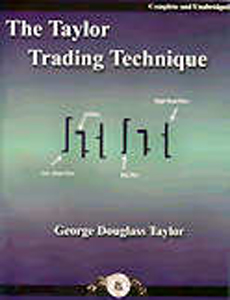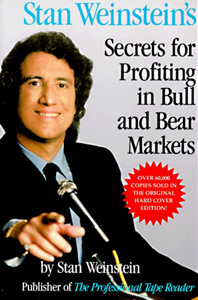Are Research House Ratings Helpful in Investment Decisions?

Further Reading
In this article we will delve into the question whether research house ratings are helpful in investment decisions.
What Are Research Houses?
In the context to the financial industry, research houses are companies focused on collecting data on investment opportunities and interpreting that information to give a particular rating which can range from a positive buy to hold and negative ratings. The rating gives an indication to investors whether the investment has future growth return possibilities.
Research houses fulfil the need to cover the vast numbers of investment products in Australia. In 2008 in Australia alone, there were over 3000 investment trusts for general savings and investment, about 300 allocated pension for income during retirement and more than 4000 superannuation funds for retirement savings. Compare the number with the 25,000 funds from the USA which has almost 15 times Australia’s population. The figures above don't even consider the alternative investment products on offer such as reverse mortgages, lending products, risk insurance products and agribusiness investments.
Research houses are used by financial planners and especially boutique financial planning firms and other dealers to outsource the research function of their work - helping them save time in assessing and selecting investments for their clients. Research reports provided by these firms are used by financial planners as a form of insurance so if the investment goes sour they can point to blame to the researcher.
Research House Business Model
Financial research houses are usually set up and reimbursed for their services in two ways. One method of payment is subscription based and the other business model is a pay for ratings type model.
Research House Controversy
The financial research industry is under scrutiny by ASIC (Australian Securities and Investments Commission) when a number of investments which were given a positive rating failed. Certain companies gave positive ratings to agribusiness schemes (Timbercorp and Great Southern), hedge and mortgage funds (Westpoint and Basis Capital) which had failed in recent years.
Because of how the industry currently operates, fund managers may shop around for a researcher who is likely to give a great rating which they can in turn use in their marketing and advertising to promote their funds to investors and financial planners. At the present moment there is no requirement to disclose how the researchers are compensated for their work or any conflicts of interest.
Investment Trends
Research houses have been taking a bit of flak lately due to the failure of a number of investments which they have given positive investment ratings.
Retail investors, the public, are turning more to direct investing and perhaps even active share trading activities due to the loss in confidence. Demand for other direct investment products such as ETFs (Exchange Traded Funds) are booming.
Are Ratings Helpful in Investment Decisions?
Ratings can be helpful in investment decisions, but use it at your own risk. The research houses specialise in finding out and interpreting the information to see if investments are worthwhile investing hard worked money. As we have shown, there are issues within the industry which may work against their best intentions, such as the enormous number of funds to analyse and possible conflict of interest as well as the methods of compensation for their services.
- How to Trade Forex and Gold Options
- How to Trade the Gold Price and Profit!
- Forex Trading the EUR/USD Pair € EURO and $ US Dollar
- How to Trade Stock Market Indices S&P500
- How to Trade Crude Oil
- Forex Trading Psychology
- What Are Broker Recommendations?
- Free Tickets to Trading & Investing Seminar & Expo ($18) Brisbane 2013
- Stock Calc App
- All About Warrants
- Introduction to Exchange Traded Funds
- Introduction to Exchange Traded Funds: Features
- Introduction to Exchange Traded Funds: Domestic ETFs
- Introduction to Exchange Traded Funds: International ETFs
- Exchange Traded Commodities
- Australian Stock Scan
- Australian Online Share Trading
- List of Trading Books
- Interesting Thoughts about the Australian Dollar
- What's the Meaning of Hawkish?
- Do You Know How To Use the P/E Ratio
- Trading, Religion and Politics - Do They Have Anything in Common?
- Shares that are Volatile that Double and Half in the Short Term
- Telstra (TLS) T3
- Margin Call by E-mail
- The Cost of Holding a Position
- Lack of Disclosure: Compensation from ASX Listed Company
- Unrealistic Returns and Benchmarks
- CMC Markets Down
- Quality versus Quantity Forex Trading
- Woolworths 1H Sales $30.7bn up 3.2%
Date added 31-01-2013 - ASIC Fines CommBank's CommSec
Date added 25-09-2012 - Industry Super Network Calls to Ban High Frequency Trading (HFT)
Date added 22-09-2012 - NAB Launches Online Share Trading Platform
Date added 19-09-2012 - Reserve Bank of Australia Says 23 Countries Holding AUD
Date added 18-09-2012 - Australia Post Digital Mailbox
Date added 10-09-2012 - Winners and Losers of Trading for Week 2
Date added 16-01-2012 - 2012's First Week of the Best and Worst Traded Stocks
Date added 09-01-2012 - 2011's Last Best and Worst Traded Stocks
Date added 05-01-2012 - Best and Worst Pre-Christmas Traded Stocks
Date added 30-12-2011 - Trading Winners and Losers for Dec. 12-16
Date added 19-12-2011 - Best and Worst Traded Stocks for Dec. 5-9
Date added 13-12-2011 - Top 3 Best and Worst Traded Stocks
Date added 05-12-2011 - ASX Glitch Trading Halt
Date added 27-10-2011 - Worst Trade Stocks (and the Best)
Date added 06-08-2011
Top 150 Public Companies Listed on the Australian Stockmarket as at 29/05/2009
- BHP Billiton
- Westpac Banking Corporation (WBC)
- Commonwealth Bank of Australia (CBA)
- National Australia Bank (NAB)
- Telstra (TLS)
- ANZ
- News Corporation (NWS)
- Woolworths Limited(WOW)
- Woodside Petroleum Limited (WPL)
- Rio Tinto
- Westfield Group (WDC)
- Westfarmers Limited (WES)
- QBE Insurance
- CSL
- Newcrest Mining Limited (NCM)
- Origin Energy Limited (ORG)
- Santos Limited (STO)
- AMP Limited (AMP)
- Macquarie Group (MQG)
- Foster’s Group Limited (FGL)




